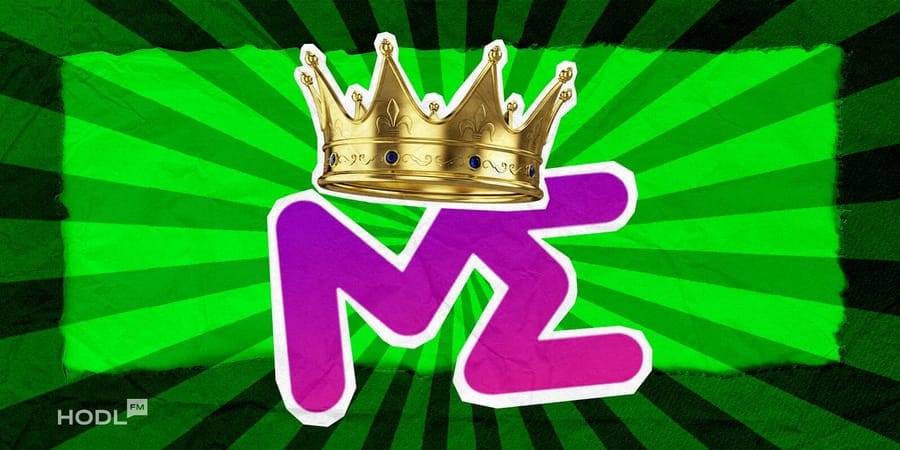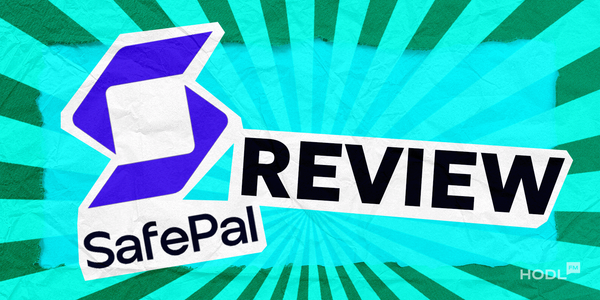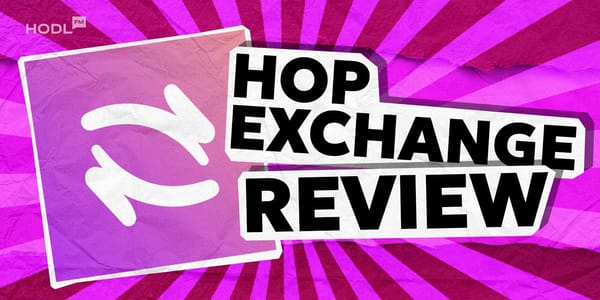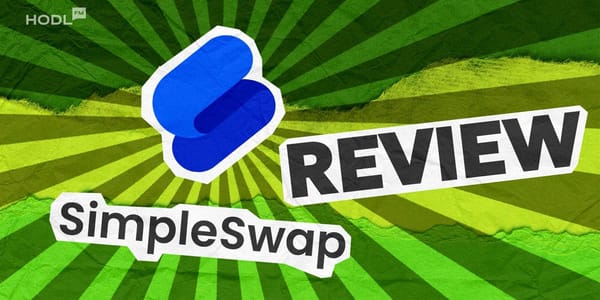The world of non-fungible tokens (NFTs) has emerged as a vibrant and rapidly growing phenomenon, capturing the attention of digital enthusiasts and investors alike. Assuming that you fall into one of those groups, you might be interested in some facts about NFTs.
These unique digital assets, backed by blockchain technology, have revolutionised the way we perceive and trade digital art, collectibles, and other forms of digital assets. In 2021 alone, the NFT marketplace experienced a staggering surge, with crypto enthusiasts worldwide spending nearly $41 billion on NFTs, nearly $9 billion less than the total spent on traditional art during the same period.
This fervor for NFTs has fueled the rise of numerous marketplaces, each vying to carve out a niche in this dynamic landscape. Among them stands Magic Eden, a platform that has quickly gained prominence in the realm of NFT trading. As the title suggests, this article will be about Magic Eden. Let’s learn about the world of NFTs and explore the unique offerings of the Solana-based platform.
Magic Eden overview
Magic Eden was founded in 2021 by CEO Jack Lu, CTO Sidney Zhang, COO Zhuoxun Yin, and chief engineer Zhoujie Zhou. It is a Solana-based dynamic NFT marketplace that has gained tremendous popularity in a short span of time. With its multi-chain integration, Magic Eden supports both the Solana and Ethereum blockchains, providing users with a diverse range of options for buying, selling, and trading NFTs.
Magic Eden has achieved remarkable progress since its foundation in September 2021. In a span of just nine months, the platform has emerged as the second-largest NFT marketplace, surpassed only by OpenSea – the giants. With an impressive collection of over 10,000 NFTs and a staggering $2 billion in sales, Magic Eden has quickly solidified its position in the industry.
With that said, we basically scratched the surface. The competition for NFT marketplaces is very high and to go deeper, Magic Eden’s prominent features will be analyzed further in this article. Before that, here is a brief look at the status of the competition.
Magic Eden alternatives
While Magic Eden shines brightly, there are other notable players in the NFT market. Let’s take a closer look at three of its main competitors:
Opensea
A behemoth in the NFT world, Opensea is known for its vast collection of digital assets and wide range of payment tokens. The platform caters to both seasoned collectors and newcomers, offering a seamless and established marketplace for NFT enthusiasts.
SuperRare
Designed specifically for digital creators, SuperRare showcases unique, single-edition digital artworks. Its focus on exclusivity and quality attracts artists and collectors who appreciate the value of rarity and craftsmanship.
Rarible
Geared towards beginner NFT enthusiasts, Rarible simplifies the process of buying, selling, and creating NFTs. With a user-friendly interface and popular collections, Rarible provides an accessible entry point into the world of NFTs, even for those without coding knowledge.
Pros and cons of Magic Eden
Let’s weigh the pros and cons of Magic Eden to get a comprehensive view of its strengths and weaknesses:
Pros:
- Beautiful website design: Magic Eden captivates users with its visually stunning and immersive website design, creating an engaging browsing experience.
- Simple and easy-to-use interface: Navigating the Magic Eden platform is a breeze, whether you’re a seasoned collector or a first-time user. The intuitive interface ensures a seamless user experience.
- Launchpad feature for curated collections: Magic Eden’s Launchpad feature ensures that only the best collections make it to the marketplace through a rigorous assessment process. This helps maintain a high standard of quality and authenticity.
- Enhanced protection against rug pulls: Magic Eden has recently implemented upgrades to enhance security measures and protect users from fraudulent projects and rug pulls, fostering a safer environment for trading and investing.
- Benefits of Solana’s speed and low transactional cost: Being built on the Solana blockchain, Magic Eden leverages its impressive speed and low transaction fees, providing users with efficient and cost-effective transactions.
- Popularity and volume: Magic Eden has gained significant traction, boasting a considerable volume of trades, surpassing many of its rivals on different blockchains. Its popularity makes it an attractive destination for both buyers and sellers.
- New focus on gaming: Magic Eden recognizes the growing influence of gaming in the NFT space and has embraced it, expanding its offerings to cater to the gaming community.
Cons:
- Presence of rip-offs and copies: As an open platform, Magic Eden is not immune to the presence of rip-offs and copies of popular projects from different blockchains. While efforts are made to curate the marketplace, some less authentic projects may find their way onto the platform.
- Lack of exclusivity: Magic Eden tends to lean towards the more affordable end of the NFT spectrum, which can result in a perceived lack of exclusivity. This may discourage collectors seeking high-value and rare pieces.
- Website bugs and connectivity issues: Users have reported occasional difficulties with wallet registration, connection stability, and frequent disconnections on the Magic Eden website. These technical challenges can hinder the overall user experience.
- Limited functionality on the mobile app: While Magic Eden provides a mobile app for browsing, full functionality is only available through a web browser. This may inconvenience users who prefer to access the marketplace on their mobile devices.
- The potential impact of the OpenSea/Solana deal: Speculation surrounding a potential deal between OpenSea and Solana raises concerns about the future of Magic Eden. The impact of such a deal on Magic Eden’s market position and growth remains uncertain.
Fees for using Magic Eden
Magic Eden operates on a fee-based model, and it’s essential to understand the costs involved. The platform charges transaction fees, typically a percentage of the sale price, to cover the expenses associated with maintaining the marketplace infrastructure and providing a secure trading environment. For a breakdown of the fees, you can refer to the table below:
| Transaction fee | 2% |
| Royalty fee | Determined by NFT creator |
Supported wallets
Magic Eden supports a variety of wallets, including but not limited to Phantom, MetaMask, Slope, Sollet, Solflare, Clover, Ledger, Solong, and MathWallet.These wallets offer compatibility and seamless integration with the Magic Eden platform, allowing users to manage their NFT collections with ease.
Blockchains
Magic Eden operates on two major blockchains: Solana and Ethereum. This dual-chain integration enables users to explore a wider range of NFTs and take advantage of the unique features and benefits offered by each blockchain.
Conclusion
Magic Eden has quickly established itself as a prominent player in the NFT marketplace, captivating users with its visually appealing interface, user-friendly experience, and commitment to quality collections. While it may face challenges such as the presence of copies, limited exclusivity, and occasional technical issues, Magic Eden’s popularity and dedication to user safety remain its strong suits. With its recent focus on gaming and continued growth, Magic Eden is poised to continue its ascent in the NFT world.
FAQ about Magic Eden
Is Magic Eden a good marketplace?
Magic Eden provides a vibrant marketplace for buying, selling, and trading NFTs. Its beautiful design, user-friendly interface, and commitment to quality make it a compelling option for both creators and collectors.
Who pays the fees in Magic Eden?
In Magic Eden, fees are typically paid by the sellers. The platform charges a percentage-based transaction fee to cover operational costs and ensure a secure trading environment.
How do I sell NFTs on Magic Eden?
To sell NFTs on Magic Eden, users need to create an account, connect their compatible wallet, and list their NFTs for sale. The platform provides a straightforward process for sellers to showcase their digital assets to potential buyers.
Does Magic Eden report to the IRS?
While this article aims to provide an overview of Magic Eden, specific legal and tax obligations may vary depending on users’ jurisdictions. It is recommended to consult with relevant tax professionals or legal advisors regarding reporting requirements and obligations.
Magic Eden enchants users with its visually captivating interface, easy-to-use platform, and commitment to quality collections. As the NFT market continues to evolve, Magic Eden stands out as a vibrant marketplace catering to the needs of both creators and collectors. While it faces certain challenges, the platform’s popularity and dedication to user experience make it a compelling choice in the ever-growing world of NFTs.

Disclaimer: All materials on this site are for informational purposes only. None of the material should be interpreted as investment advice. Please note that despite the nature of much of the material created and hosted on this website, HODL FM is not a financial reference resource, and the opinions of authors and other contributors are their own and should not be taken as financial advice. If you require advice. HODL FM strongly recommends contacting a qualified industry professional.





